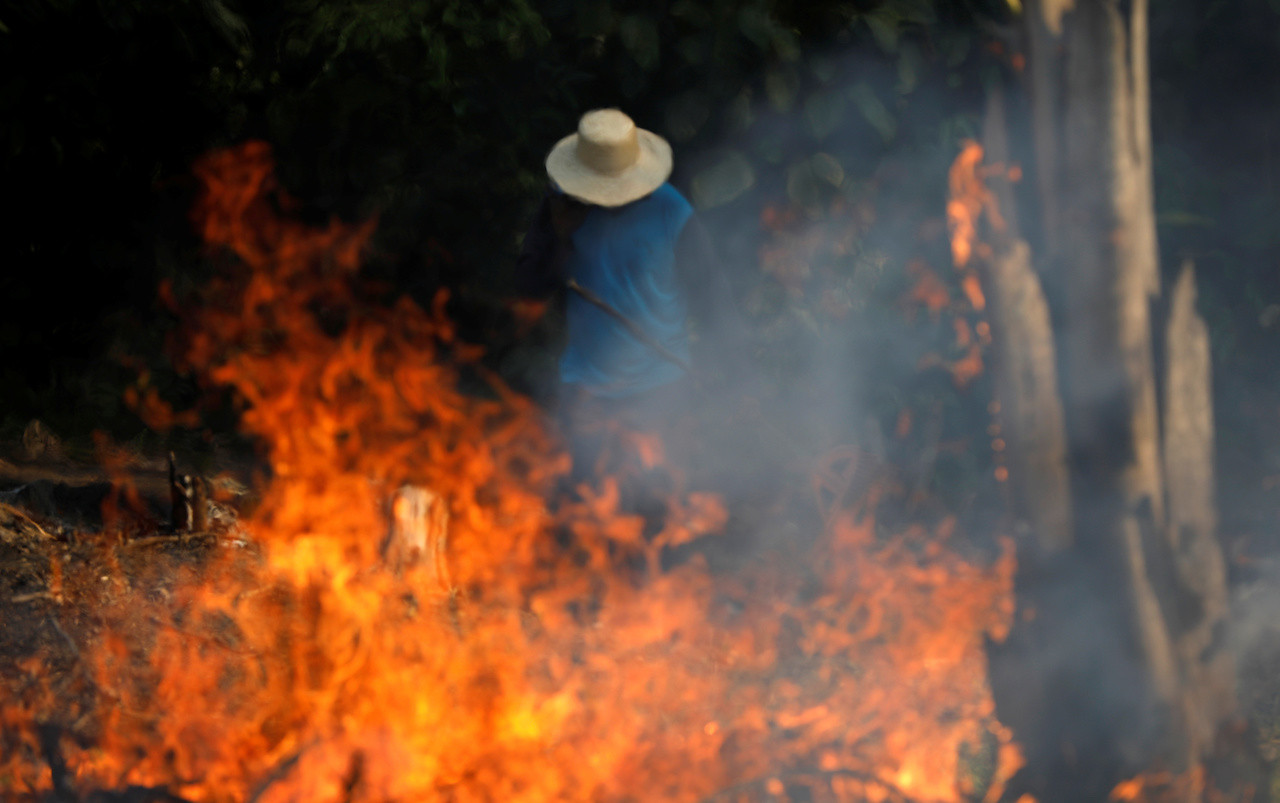Amazon and other large ecosystems at risk of rapid collapse: Study
Large ecosystems such as the Amazon rainforest and coral reefs could collapse faster than scientists had previously assumed.
Change Size
 A man works in a burning tract of Amazon jungle as it is being cleared by loggers and farmers in Iranduba, Amazonas state, Brazil August 20, 2019. (Reuters/Bruno Kelly)
A man works in a burning tract of Amazon jungle as it is being cleared by loggers and farmers in Iranduba, Amazonas state, Brazil August 20, 2019. (Reuters/Bruno Kelly)
L
arge ecosystems such as the Amazon rainforest and coral reefs could collapse faster than scientists had previously assumed, according to a study published on Tuesday.
Researchers crunched data on changes in dozens of ecosystems to conclude that Caribbean coral reefs could collapse in 15 years while the Amazon rainforest could die back within 50 years, although that finding was questioned by some experts.
"The messages here are stark. We need to prepare for changes in our planet's ecosystems that are faster than we previously envisaged," said John Dearing, professor in physical geography at the University of Southampton, who led the study, which was published in the journal Nature Communications.
While larger ecosystems take longer to collapse - due to their sheer size - the rate at which they can degrade and then disappear can happen significantly faster than in smaller systems, the study found.
That's because the sub-systems and habitats that make up larger systems can initially seem more resilient, but then unravel very rapidly when a tipping point is reached, according to the study, also by researchers from the School of Oriental and African Studies and the University of Bangor.
The study looked at 42 ecosystems in total - 4 terrestrial, 25 marine, and 13 freshwater - varying in size from small ponds to the Black Sea.
Although a number of other scientists said the research reinforced the urgency of protecting ecosystems, some also questioned whether conclusions based mostly on data from seas, rivers or lakes could be extrapolated to the Amazon.
Read also: Climate change could spark 'global systemic crisis', scientists warn
Erika Berenguer, a senior research associate at the University of Oxford and Lancaster University, said the study was undermined by the fact that the authors had only included four terrestrial ecosystems in their dataset, none of which was a tropical rainforest.
"It is very unlikely, if not dystopian, to expect that an area half the size of Europe will experience a complete shift in vegetation in just 50 years," Berenguer said.
"While there is no doubt that the Amazon is at great risk and that a tipping point is likely, such inflated claims do not help either science or policy making," she said.
Nevertheless, the findings are likely to amplify concerns that recent fires in the Amazon could weaken the rainforest's ability to withstand climate change, the University of Southampton said.
"The implications of this study for the Amazon are terrifying," said Alexandre Antonelli, science director at the Royal Botanic Gardens, Kew.
"Unless urgent action is taken now, we may be on the brink of losing the world's largest and most biodiverse rainforest, which has evolved for at least 58 million years and sustains the lives of tens of millions of people," Antonelli said.









